Imagine stepping into a room that feels fresh, clean, and invigorating, with the subtle, calming scent of lavender or the energizing aroma of citrus. This is the power of essential oils in your humidifier, transforming your indoor environment into a haven of health and well-being.
This article will guide you through the best essential oils for humidifier, exploring their unique benefits for your respiratory health, mood, and overall well-being. You will learn how to use essential oils safely and effectively to create a healthier, more enjoyable atmosphere in your home.
Why Use Essential Oils in a Humidifier?
Incorporating essential oils into your humidifier can offer a range of benefits, from improving air quality to enhancing your mood and promoting relaxation.
Improved Air Quality
Studies have shown that essential oils like tea tree and eucalyptus can effectively reduce airborne bacteria and fungi. For example, a study published in the Journal of Environmental Science and Health found that tea tree oil was effective in reducing the growth of Staphylococcus aureus, a common bacteria found in the air. Additionally, essential oils can help neutralize unpleasant odors, making your home smell fresher and more inviting. While essential oils can help improve air quality, it’s important to note that they are not a substitute for proper ventilation and cleaning. Regular cleaning and airing out your home is still essential for maintaining a healthy indoor environment.
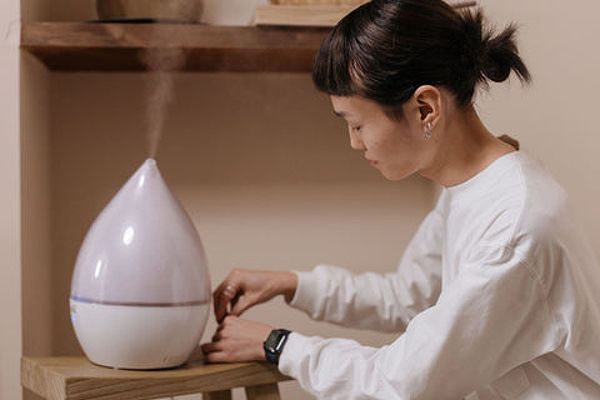
Mood Enhancement
The use of aromatherapy with essential oils has been gaining traction in recent years, with many people incorporating it into their daily routines for stress management and emotional well-being. A 2015 study published in the journal Evidence-Based Complementary and Alternative Medicine found that lavender aromatherapy was effective in reducing anxiety and improving mood in patients undergoing surgery. While the exact mechanisms by which essential oils affect mood are not fully understood, it is believed that they work by stimulating the olfactory system, which in turn affects the limbic system, the part of the brain responsible for emotions.
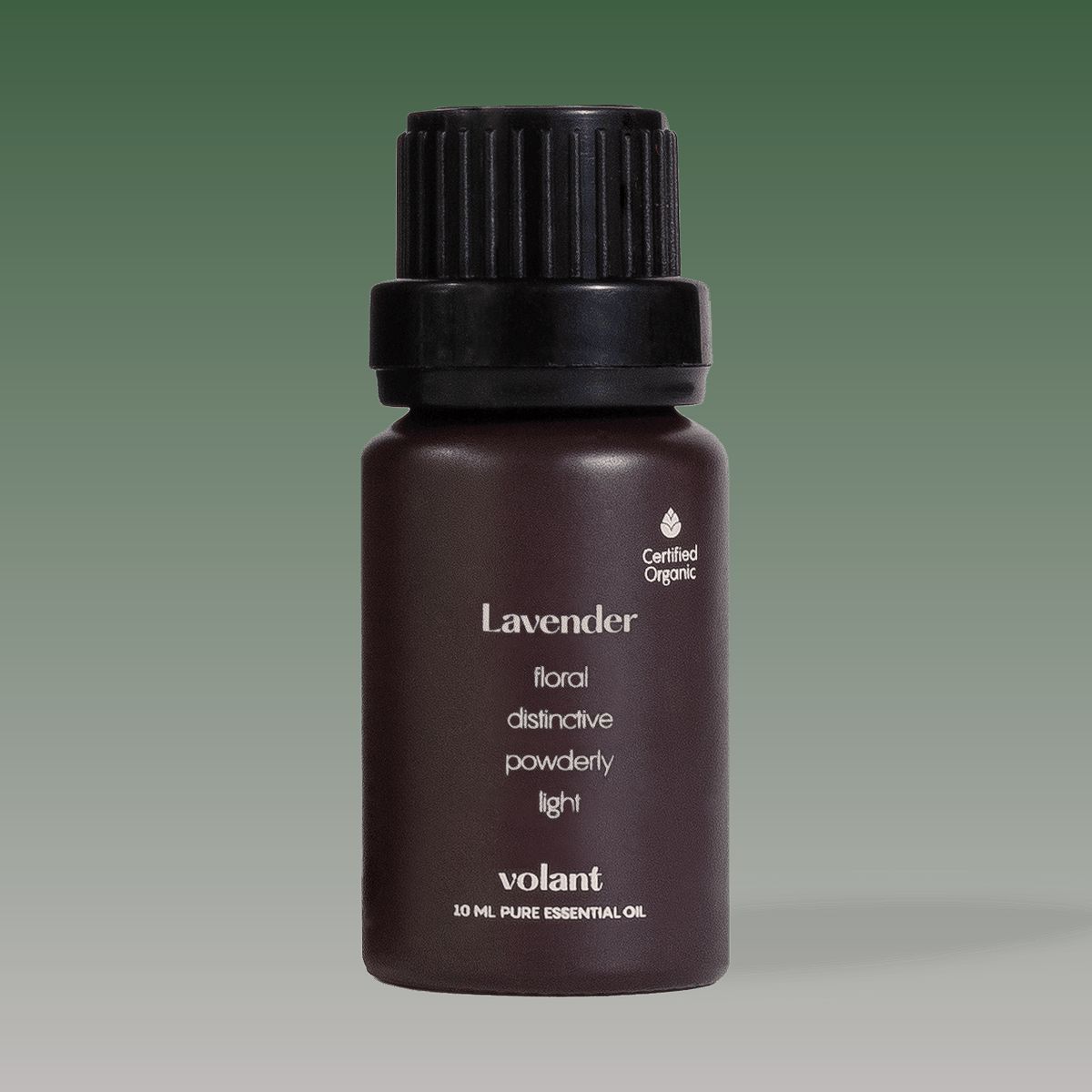
Respiratory Relief
Essential oils like eucalyptus and peppermint can help open up airways by stimulating the receptors in the nose and throat, making it easier to breathe. A 2018 study published in the journal Phytomedicine found that eucalyptus oil was effective in reducing cough frequency and severity in patients with acute bronchitis. However, it’s important to note that essential oils should not be used as a primary treatment for respiratory conditions. If you are experiencing respiratory problems, it is always best to consult with a healthcare professional.
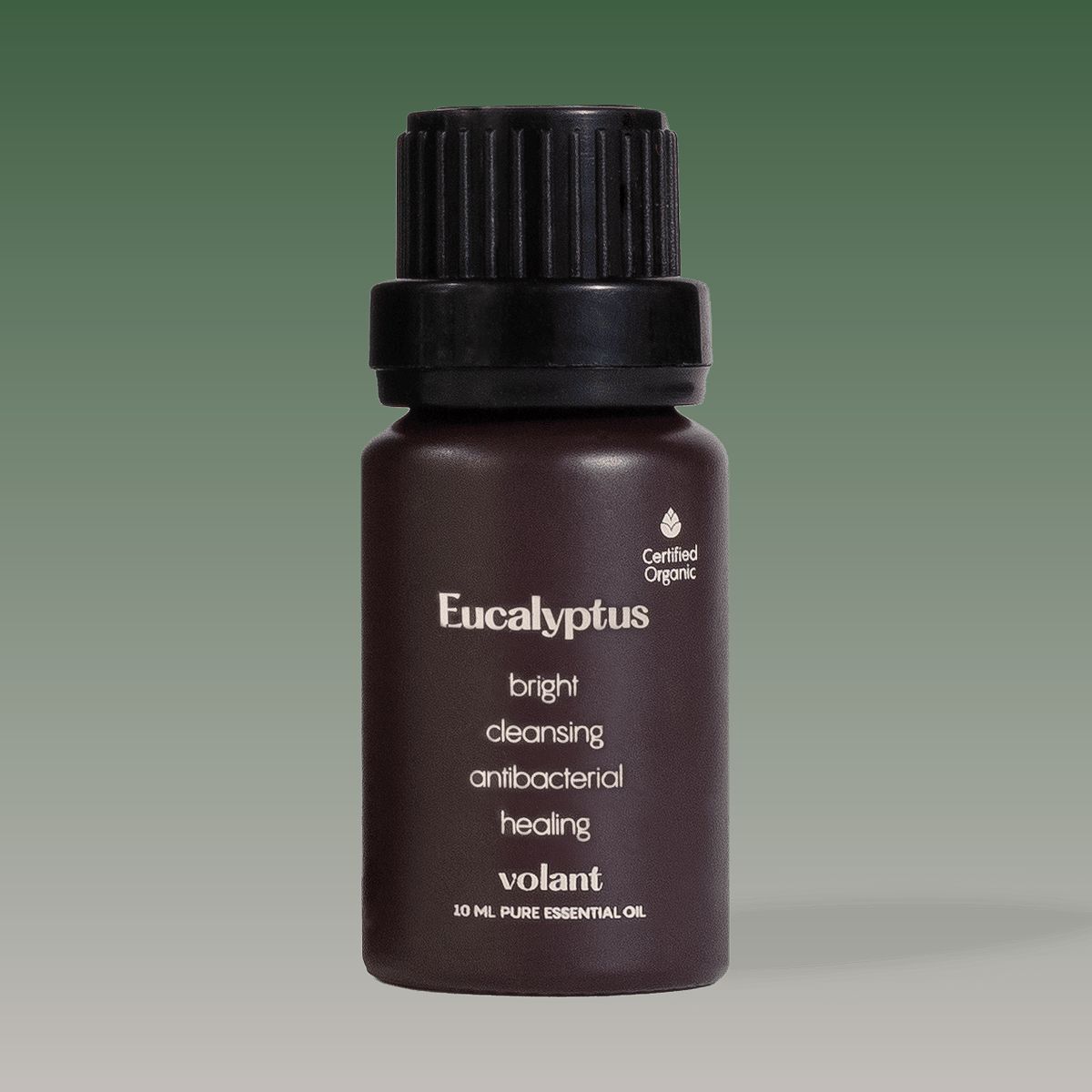
Sleep Enhancement
Lavender and chamomile are commonly used to promote relaxation and improve sleep quality. A 2016 study published in the journal Complementary Therapies in Clinical Practice found that lavender aromatherapy was effective in improving sleep quality in patients with insomnia. Chamomile is also known for its calming properties and can help reduce anxiety, making it a good choice for people who have trouble falling asleep due to racing thoughts.
Choosing the Right Humidifier for Essential Oils
In addition to ultrasonic and evaporative humidifiers, there are also diffusers, which are specifically designed for dispersing essential oils. Diffusers use different methods, such as heat or cool mist, to release the aromatic compounds into the air. When choosing a humidifier for essential oil use, consider factors such as the size of your room, the level of humidity you want to achieve, and your budget. It’s also important to choose a humidifier that is easy to clean and maintain, as this will help prevent the buildup of mold and bacteria.
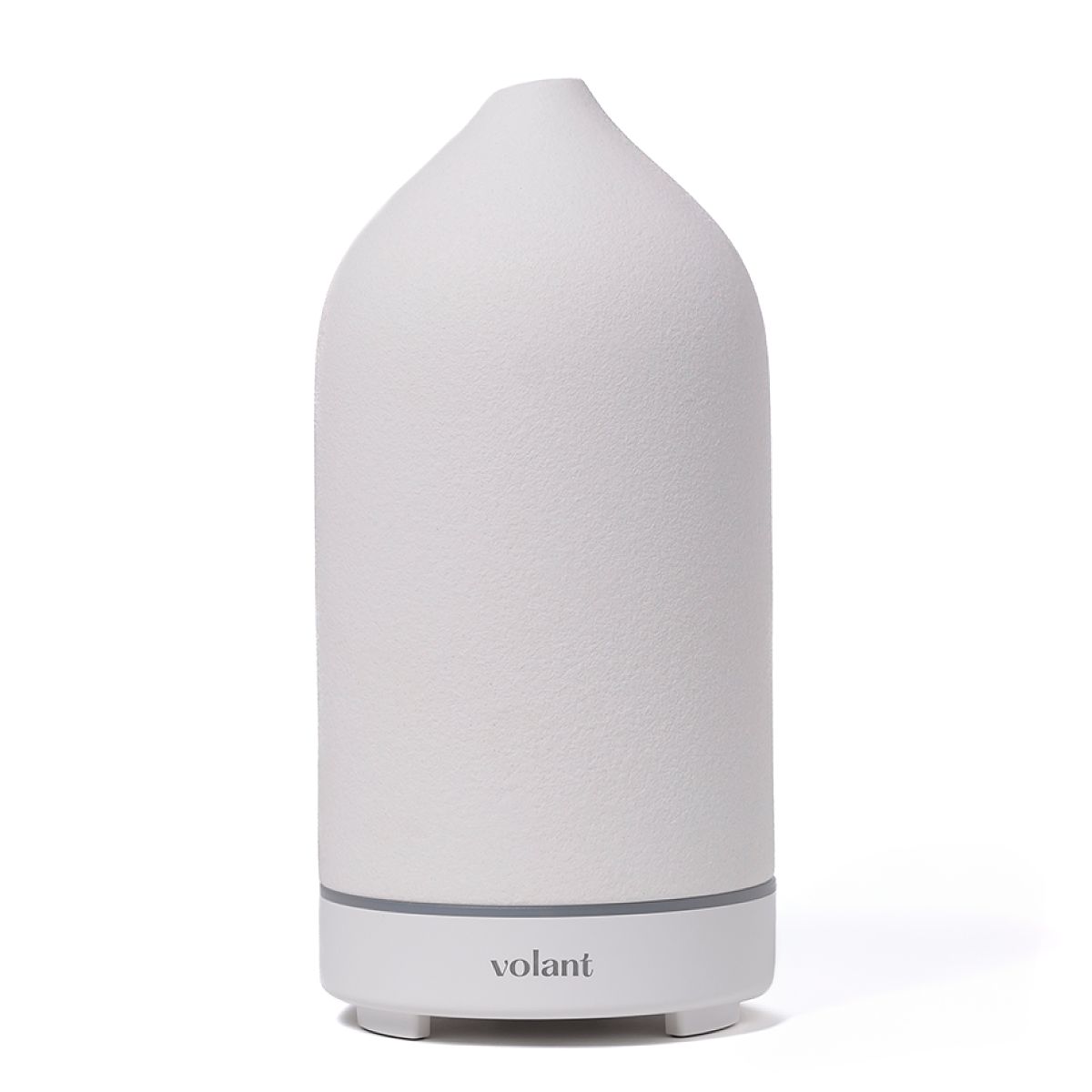
The Best Essential Oils for Humidifier Use
Remember that the effectiveness of essential oils can vary from person to person, and it’s important to choose oils that you find pleasant and that work well for you.
Lavender Essential Oil
Lavender oil is widely recognized as the best essential oil for humidifier use due to its calming and relaxing properties. Its soothing aroma can help reduce stress and anxiety, promoting a sense of tranquility. Additionally, lavender is also known for its potential to reduce inflammation and promote wound healing.
Eucalyptus Essential Oil
If you’re looking for respiratory relief, eucalyptus essential oil is a must-have. This powerful oil acts as a natural decongestant, helping to open up airways and relieve cough and cold symptoms. Its anti-inflammatory properties can also be beneficial for those with chronic respiratory issues. Eucalyptus oil can also help to alleviate muscle aches and pains.
Tea Tree Essential Oil
Renowned for its versatility, tea tree oil boasts impressive antibacterial and antifungal properties. When used in a humidifier, it can help purify the air and combat harmful microorganisms, making it an excellent choice for those seeking to boost their immunity and create a healthier indoor environment. Tea tree oil is also commonly used to treat acne, athlete’s foot, and other skin conditions.
Lemon Essential Oil
Uplifting and energizing, lemon essential oil can improve focus and concentration. Its refreshing, citrusy aroma can also help boost the immune system and fight off colds and flu. Additionally, lemon oil’s potential antibacterial qualities contribute to a cleaner, more invigorating atmosphere.
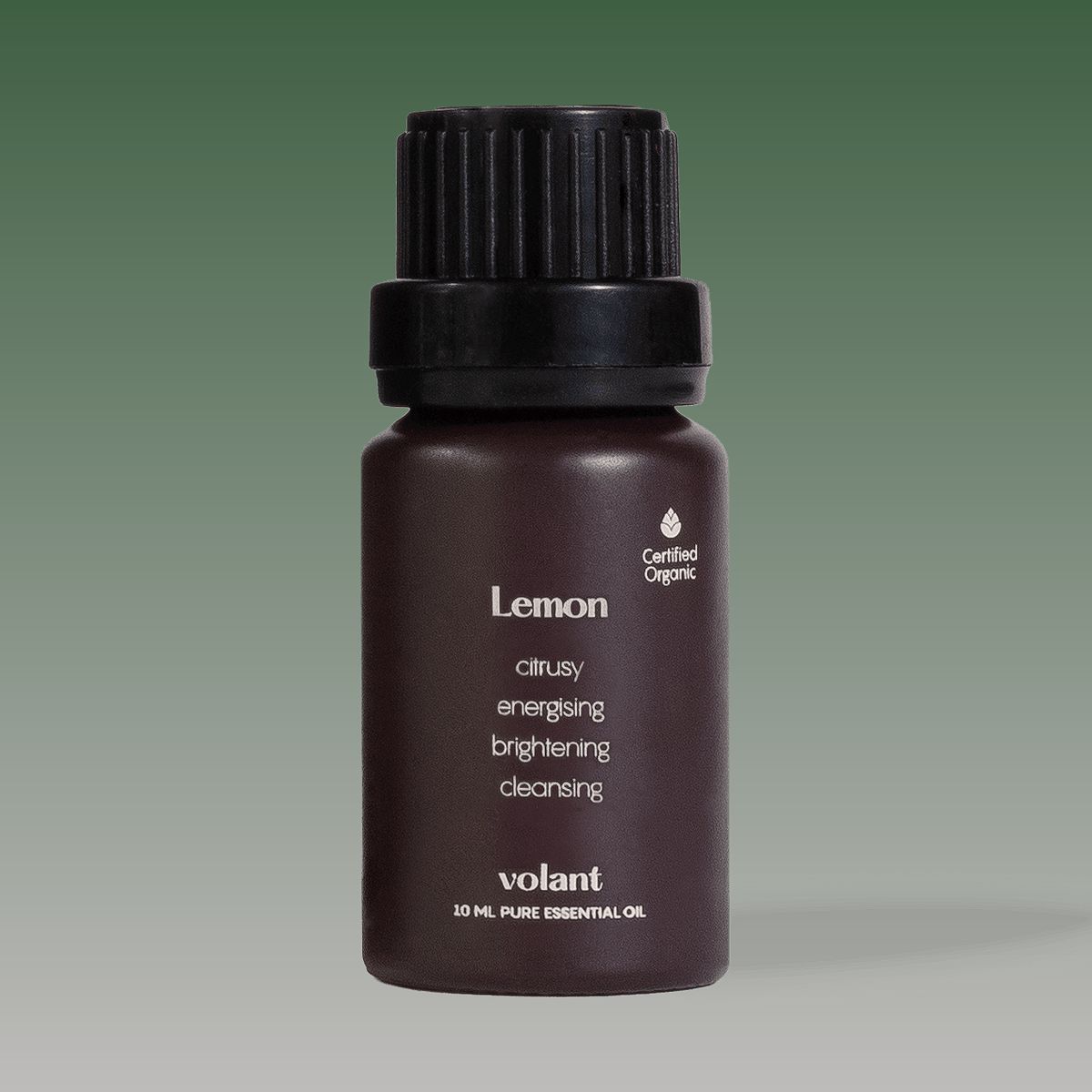
Peppermint Essential Oil
Peppermint essential oil is a true multitasker when it comes to humidifier use. Its cooling and invigorating properties can relieve headaches, clear sinuses, and promote alertness. The menthol content in peppermint oil can also aid digestion and relieve nausea, providing soothing relief for those with respiratory issues.
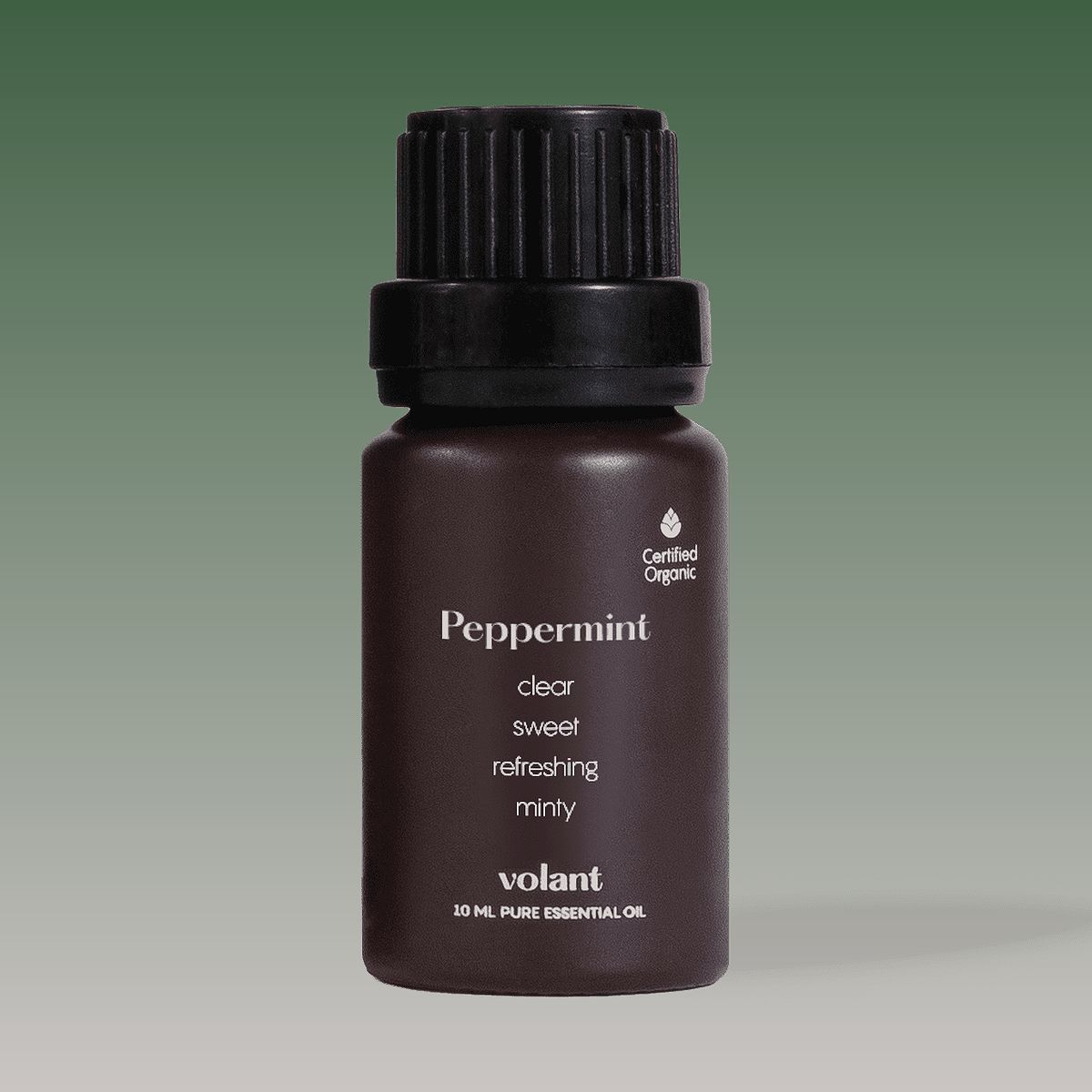
How to Use Essential Oils in Your Humidifier
To use essential oils in your humidifier effectively, follow these simple steps:
- Clean your humidifier thoroughly to ensure it’s free of any buildup or residue.
- Fill the humidifier with water according to the manufacturer’s instructions.
- Add a few drops of your chosen essential oil(s) to the water.
- Turn on the humidifier and enjoy the therapeutic benefits of the essential oil-infused mist.
Remember, some essential oils, such as citrus oils, can be photosensitive, meaning they can make your skin more sensitive to sunlight. It’s best to avoid using these oils in your humidifier during the day or to wear sunscreen if you are exposed to sunlight after using them.
Safety Precautions
When using essential oils in your humidifier, it’s important to take the following precautions:
- Dilute your essential oils with water before adding them to the humidifier. Start with just a few drops and gradually increase the amount as needed.
- Avoid using too much essential oil, as it can be overwhelming and potentially cause irritation.
- Be aware of your own sensitivity to certain oils and do a small patch test before using a new oil.
- It’s also important to avoid using essential oils around pets, as they can be toxic to some animals.
Tips for Using Essential Oils Effectively
In addition to the basic steps, here are some tips to help you get the most out of your essential oil-infused humidifier:
- Use high-quality, pure essential oils from reputable sources to ensure you’re getting the full benefits.
- Experiment with blending different oils to create your own customized aromatherapy experience.
- Consider using essential oils in combination with other relaxing activities, such as taking a warm bath or listening to calming music, to enhance the overall effects.
- Maintain your humidifier regularly by cleaning it to prevent the buildup of mold, bacteria, and mineral deposits.
FAQ
Q: What are the best essential oils for allergies?
A: Essential oils like lavender, chamomile, and eucalyptus are often recommended for allergies, as they can help to reduce inflammation and open up airways. However, it’s important to note that essential oils are not a cure for allergies and should not be used as a substitute for medical treatment.
Q: Can I use any essential oil in my humidifier?
A: No, not all essential oils are suitable for humidifiers. Some can damage the device or create harmful fumes. Always check the manufacturer’s instructions and choose oils specifically designed for diffusion.
Q: How many drops of essential oil should I use?
A: Start with 2-3 drops per session and gradually increase the amount as needed. Avoid using too much, as it can be overwhelming and potentially cause irritation.
Conclusion
As the popularity of aromatherapy continues to grow, there is increasing interest in the use of essential oils for a wide range of applications, including improving air quality, enhancing mood, and promoting relaxation. By incorporating the best essential oils for humidifier use into your daily routine, you can create a healthier, more enjoyable home environment that nourishes both your body and mind.
Remember, essential oils can be a powerful tool for promoting well-being, but it’s important to use them safely and responsibly. As certified aromatherapist [Name of Expert] says, “Essential oils can be a wonderful way to enhance your living space, but it’s crucial to choose the right oils and use them properly to ensure the best results.”
So, why wait? Elevate your humidifier game and unlock the extraordinary potential of essential oils today. Embrace the journey towards a healthier, more vibrant home environment.
